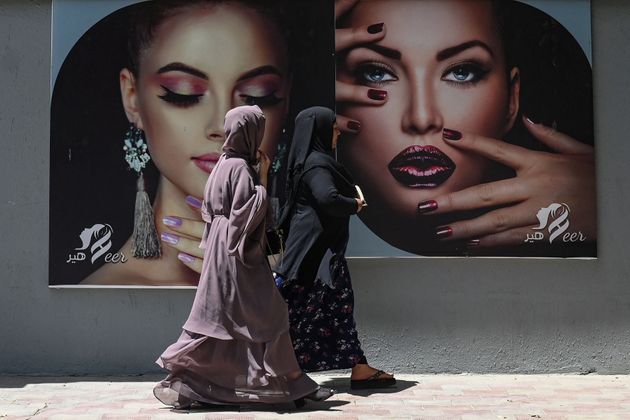At a time when the whole world is welcoming 2022 and humanity is looking to a brighter future, Afghanistan is sinking deeper and deeper into darkness.
Just last week, some Taliban fundamentalists ordered shopkeepers in western Afghanistan to cut off the heads of mannequins, insisting that figures representing the human form violated Islamic law.
A video clip showing men sawing the heads of mannequins wearing women's clothing in shops in Herat went viral on social media. The video provoked public outrage, both within the country and internationally, causing contempt both inside and outside the country.
The Taliban seized power in Afghanistan on August 15, 2021, and since then have increasingly imposed a harsh interpretation of Islamic law and severely restricted freedoms - especially those of women and girls. While hardline Islamists have not issued any official national policies on mannequins - or other restrictions - various local authorities are fighting what they say are immoral practices.
Aziz Rahman, head of the Ministry for the Promotion of Virtue and the Prevention of Violence in Herat, confirmed the order (for the beheading of the mannequins) to the French Agency last Wednesday. Some shopkeepers tried to circumvent the beheading order by covering the mannequins' heads with scarves or bags, but Rahman stressed that even this was against Islamic law. "If they just cover their heads or hide the whole mannequin, the angel of Allah will not enter their shop or house and will not bless them," he said.
Women in Taliban Islamic Law
Several shopkeepers in the city of about 600.000 residents were outraged by the order. "As you can see, we beheaded," Basir Ahmed, a clothing retailer, told AFP, adding that each model cost about $ 66. "When there are no mannequins, how do you expect us to sell our products? The customer likes to see what the clothes will look like ".
The Taliban, once in power, promised a softer version of the harsh rule that characterized their first government term, from 1996 to 2001, when any artificial representation of the human form was illegal. However, they do not seem to keep that promise, as the restrictions return, including the commands to pray 5 times, the almost "prohibition" of western clothing and the obligation of the beard to men.
As is customary, women bear the brunt of the new orders, which pull them away from the public sphere. Most girls' secondary schools are closed, women are excluded from public employment except in selected specialties, and last week the new guidelines were vertical: women can no longer travel long distances unless accompanied by a male relative.
The Taliban have also intensified crackdowns on alcohol sellers, rounded up drug addicts and banned music.
Afghanistan's economy is sinking
The rise of the Taliban has devastated Afghanistan's already troubled economy, which is largely dependent on aid and mineral exports - especially to the United States. But the States have frozen any deal with the country. Similarly, the international scene has stopped most trade with the Taliban.
However, the UN Security Council last week adopted a US resolution to send humanitarian aid to desperate Afghans, while keeping funds out of the hands of the Taliban government, which has not yet been recognized by any country.
